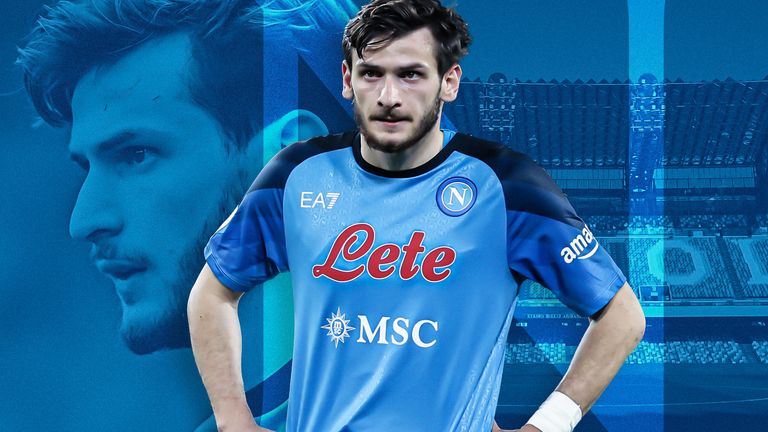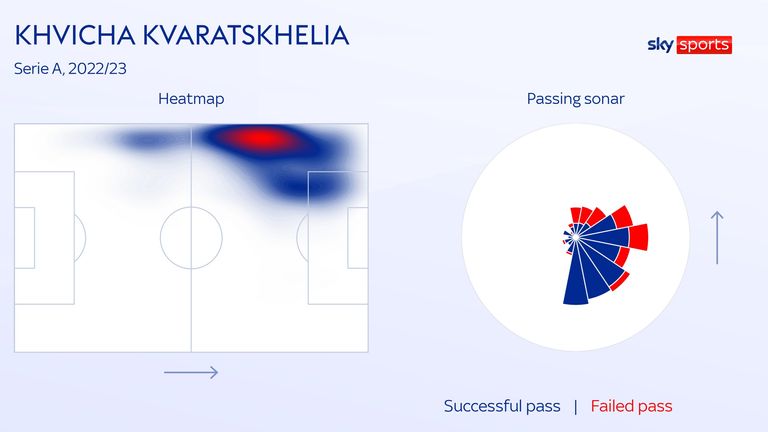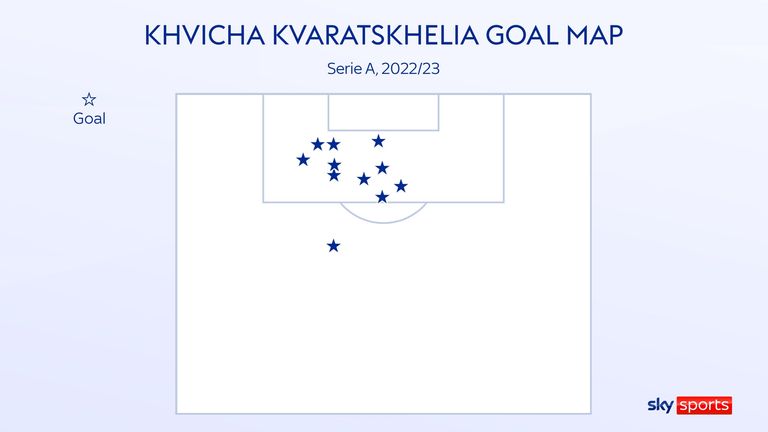Khvicha Kvaratskhelia profile: Rise of Napoli winger compared to Diego Maradona and George Best explained
Compared to George Best and Diego Maradona, Napoli winger Khvicha Kvaratskhelia’s rapid rise has captured the imagination. Find out what makes him special in this exclusive interview with his former coach and why he could be one of the players of his generation
Tuesday 18 April 2023 11:03, UK
Some say he is the most exciting player in Europe. Former Italy international Antonio Cassano claims Jack Grealish is not fit to lace his boots. Gianfranco Zola prefers to reach back through history for his comparison. George Best, if you were wondering.
Khvicha Kvaratskhelia is a name worth learning to spell and a player worth watching. He has ignited Napoli's run to the Serie A title and the imagination of the people. The thrill is amplified by the incongruity. One year ago, he was in the Georgian league.
His brief time at Dinamo Batumi was a quirk of geopolitics, his contract at Rubin Kazan ripped up following Russia's invasion of Ukraine. But it adds to the mythology surrounding the man they call Kvaradona, emerging from nowhere to dazzle Europe's defences.
Although, that is not quite true. Kvaratskhelia may look as if he is playing football from another planet but he was among us all along. It is a point that is made by Leonid Slutsky, the former Rubin boss who has managed him for more matches than anyone else.
"What he is doing is not a surprise to me," Slutsky tells Sky Sports.
"Nobody knew about him before he came to Italy and that is understandable because the Russian league is not a popular league around Europe. But everybody in Russia knew. His quality, his position in world football now, that is not a surprise to any of us.
"I congratulate Napoli because they won the lottery. For next to nothing they have a £100m player."
Napoli did their homework. A certain Premier League club did too. "A year ago, there was very serious interest from Tottenham. It was almost a done deal." But it required foresight to anticipate this. Half a season in Italy has brought more goals than four years in Russia.
"He had the same quality, the same style of play," says Slutsky.
"But we have a phrase in Russia. If a bad player moves to a good team, he can become a good player. If a good player moves to a bad team, he can become a bad player. If you start playing at a different level in Serie A, that is going to help your development.
"Kvara already had the quality but he has since improved his qualities in a big team like Napoli that is contending for major titles. The other players around him, the coaches, the level of the league, all that has helped to make him stronger and stronger."
Slutsky credits Napoli coach Luciano Spalletti for integrating him sensibly, ensuring that a leap in standard that might have been overwhelming instead felt like a natural progression for the player. "My only doubt was about his defensive actions," he explains.
"In the first few games for Napoli, it was difficult and Spalletti was changing him after 60 to 70 minutes because his defensive work was not good. But after three or four games, his defending was at a completely different level, more intensity and more endurance.
"That is very important because when you take a step to a bigger league you need time to adapt. It was good management by Spalletti. He gave him that opportunity to play regularly as a starter and after a short while everybody could see the improvement."
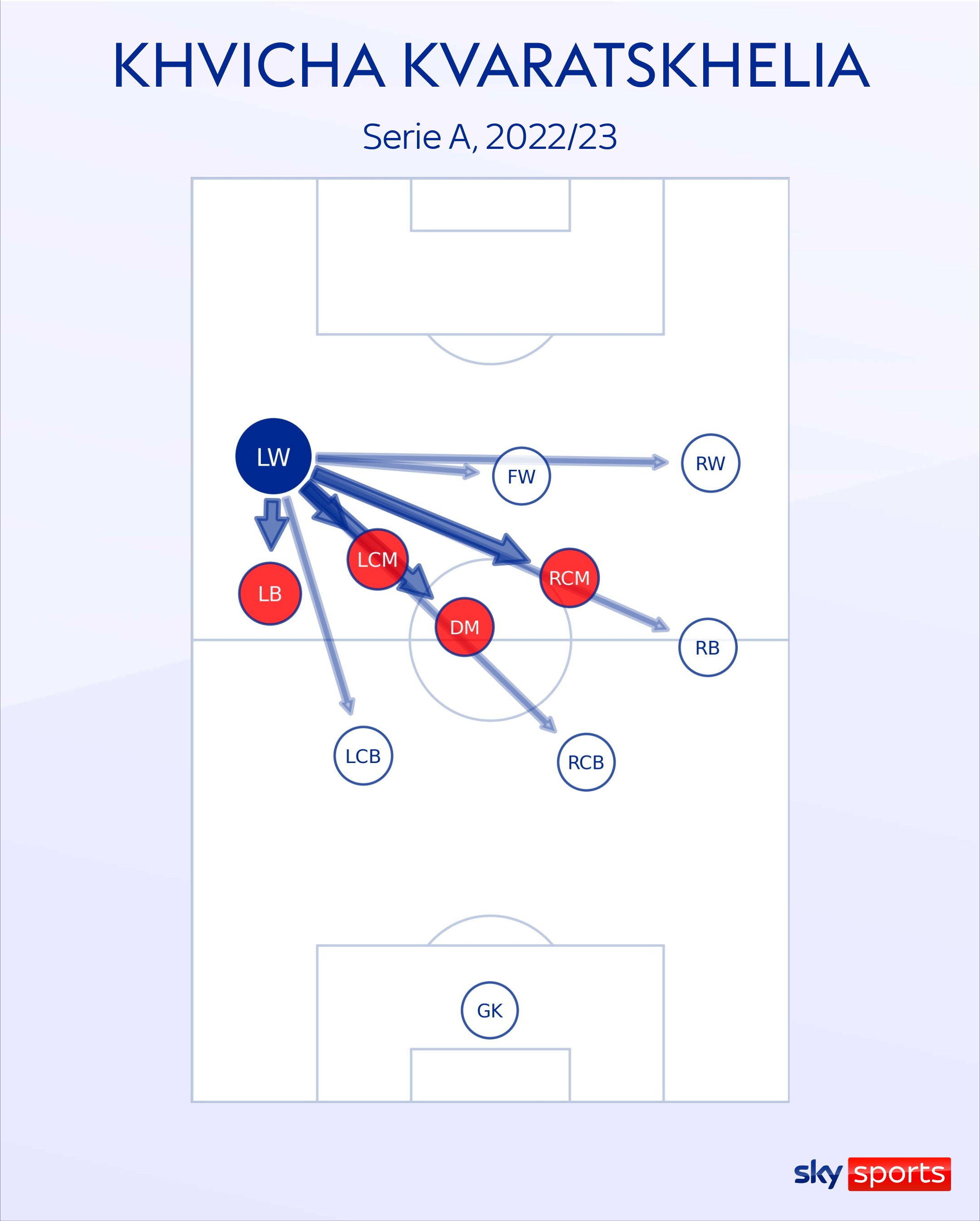
There have been other changes in his game over time. Kvaratskhelia is more resilient now. "The Russian league is very tough, very physical, maybe the toughest in the world," argues Slutsky. "You have to show not just your quality but also your character."
Particularly given the lack of protection.
"From the first minute in Russia there were very bad fouls against him and the referees never acted. For example, against Milan recently, both players on his side of the pitch received a yellow card in the first half and the coach had to change them both.
"If you play hard and dirty against Kvara in Italy, you will receive the yellow card as a result. In Russia, it was a completely different situation. There could be 10 or 20 fouls on Kvara and no referee would blow the whistle. It was a problem for him.
"At first, he was crying after each foul. If we are talking weaknesses, he did not have the patience. He was frustrated after each foul. Of course, we had to have our fingers crossed that he did not get a serious injury but it turned out to be a good experience."
Even when Kvaratskhelia did wriggle free of this attention, his inclination towards the aesthetic sometimes put him at odds with his coach. Luciano Spalletti still talks of his tendency to find the most difficult angles. Back then, Slutsky had to have a word.
"Kvara thought that a goal would only be allowed if he finished in the top corner. He always tried these beautiful finishes. I tried to explain to him, 'Kvara, if your finish goes in the middle of the net and the ball goes between the goalkeeper's legs, the goal still counts.'
"But he had this youthful maximalism to his game, this idea that he only wanted to score beautiful goals. Now, of course, he is a little older with a different level of responsibility and he is able to score all types of goals. He scores the simple goals too now."
Sometimes. On other occasions, such as against Sassuolo in February, he will deftly dink the ball away from his marker before dancing through. Against Atalanta in March, he was surrounded by eight opponents when the ball hit the net, not a team-mate in sight.
"He can easily dribble past three or four players. This is not a big deal for him. When it comes to his football ability, it is fantastic dribbles, left and right, with very sharp decision-making and very good finishing. He has abnormal thinking on the football pitch."
Kvara, the street footballer
Where does that thinking come from? That is what scouts the world over are now wondering because what Kvaratskhelia has, they want. Xisco Munoz, a title-winner with Valencia, played and coached Georgian club Dinamo Tbilisi and believes he saw it up close.
"It is a different lifestyle," Munoz tells Sky Sports.
"In Georgia, they play their football in the street. They play one against one there against bigger boys and they have to fight and have the contact. In Spain, we stop and we pass, maybe learning on a training ground or at school. In Georgia, it is street talent."
Kvaratskhelia was a boy in the academy when Munoz played there and had left for Rubin when he returned as coach. "They always spoke about him," he says. "I am very happy because I know the work they did at Dinamo Tbilisi." Like Slutsky, he is not shocked.
"He had these qualities five years ago," adds Munoz. "Now, everybody is speaking about him because he has more repetition in every game. Before, when I would watch him with the national team, he would maybe have three or four situations in a game.
"Now he has the capacity to do that 12 times or 15 times in a game. So, now, everybody is, like, who is this guy? That is all about the repetitions. Five years ago he had that same ability in one-against-one situations. It is difficult to teach this in school. He is different."
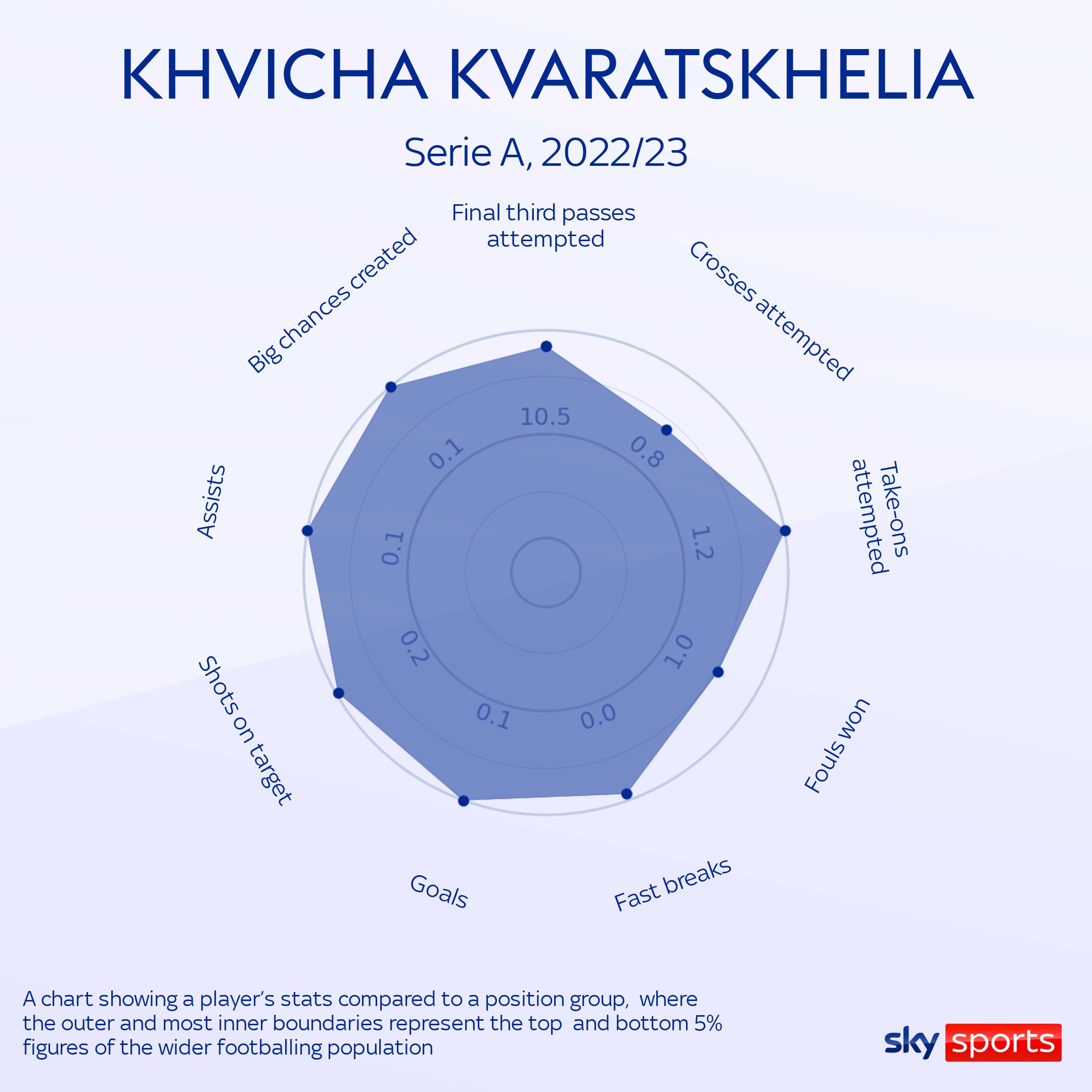
'A player with no ceiling'
The key to longevity for the 22-year-old winger is that the maverick on the pitch is nothing of the sort off it. "My analyst at Dinamo Tbilisi worked with him. He told me that it was not just what you see on television, he has a very good professional attitude."
Slutsky agrees. "If we are talking personality, he is very kind, very professional and very open to learning. His behaviour is not that of a star. He is close to his family and always smiling. I cannot say anything negative about him. I am very proud of who he is."
Their relationship is intact despite the frustration at how his time at Rubin came to an end. "It was politics and very painful for us. Losing eight players with no window is a disaster." But Slutsky likens keeping him in Russia to keeping an eagle in a hummingbird cage.
"This is a player without a ceiling. He does not have a limit. His maximum level is the sky. There is no roof. He is already playing for one of the best teams in the world. But of course there are teams deemed to be at another level in terms of reach.
"We are talking Manchester City, Bayern Munich, Real Madrid and Barcelona. I think that if he took the next step to one of the biggest clubs in the world, he would adapt very quickly to that next level. Right now, he could play in any starting XI in the world."


